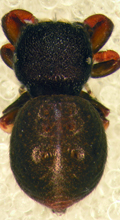Latest News Archive
Please select Category, Year, and then Month to display items
![]()
The closing date for the submission of nominations for five members of the Convocation to the Excom of the Convocation was 18 May 2020 at 16:30. A total of six nominations were received and scrutinised, after which two nominations were declared invalid due to substantial non-conformance with the requirements laid down. The remaining four candidates are thus elected to the Excom and will serve for a period not exceeding five years.
We wish to congratulate the following four officials (in alphabetical order) with their election to the Excom of the Convocation:
1. Dr Pieter Bettings
2. Ms Ntombi Nhlapo
3. Mr Ntakuseni Razwiedani
4. Ms Nokuthula Sithole
A meeting of the Excom of the Convocation will be scheduled to discuss the one remaining vacancy in the Excom.
We wish to express our sincere gratitude to all those who participated in this process as well for their interest in, and commitment to the University and its affairs.
Received from: The Registrar and the President of the Convocation
UFS entomologists describe a new spider species
2014-02-19
|
 |
It is about 3mm in size and almost looks like a ladybird, but this new spider is the cause of great excitement at the University of the Free State’s (UFS’s) Department of Zoology and Entomology.
The new species of spider, now known as Rhene amanzi, was recently described for the first time and was ‘introduced’ to other arachnologist at the recent congress of the African Arachnology Society at Amanzi Private Reserve.
Dr Charles Haddad, senior lecturer in the UFS’s Department of Zoology and Entomology, said they already stumbled upon the male spider in 2010 when a student was doing research at the reserve. After a very long process, the spider was described and a couple of weeks ago, whilst at the congress, they also found the female.
“Up to now we only know that the spider lives in trees in the Brandfort area. The range could be wider, but since it was only described recently, other arachnologists will only now be able to identify accurately.”
Dr Haddad says they still have to determine how many eggs the female is able to lay, what the spider’s life cycle looks like and what their habitual preferences are.
“What we do know is that it probably isn’t poisonous and that the spider imitates a ladybird in order to protect itself against predators.”